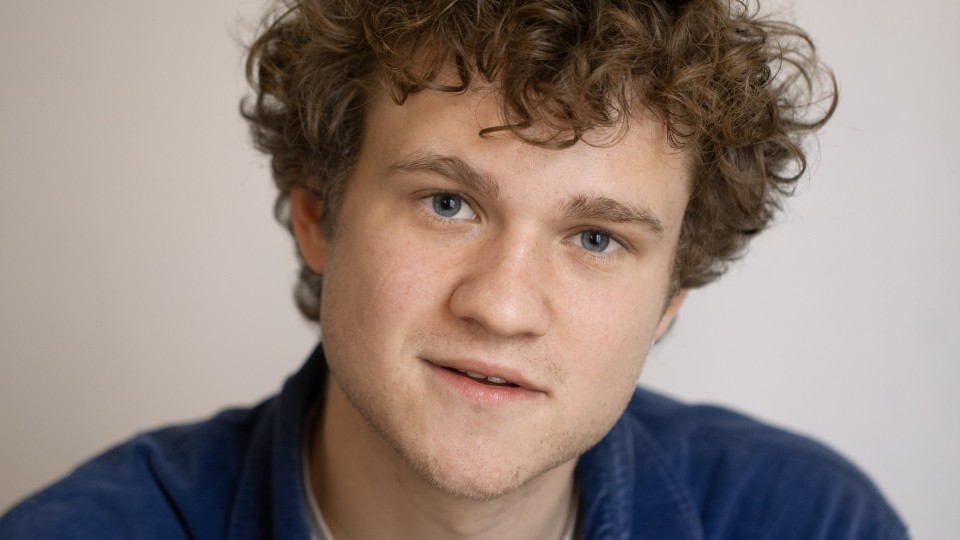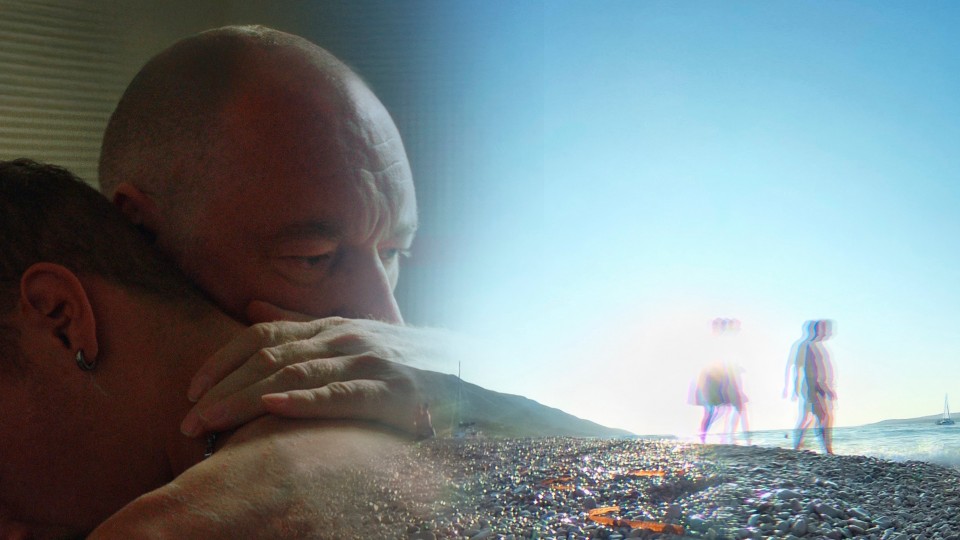Simon Maria Kubiena uses the chimera to establish the fundamental tone of his cinematic narrative: the concept of an organism
that is two things – and bears the fruits of one, the other or both at the same time – becomes the crux of his endeavour to
go beyond simplified polarities. A young man, his guilt and the silence which is his family’s response; this is what triggers
the action in his debut film, THE FLOWERING OF A CHIMERA. The multifaceted narrative, though still at an early stage, has
already brought powerful international response in recent months via La Résidence, the Locarno Filmmakers Academy, the co-development programs Alliance 4 Development and CineLink.
The title of your first feature film project is THE FLOWERING OF A CHIMERA. In what sense is the term chimera used here?
SIMON MARIA KUBIENA: When I was 18, I had a very important connection with an older man. He had plants, including a citrus bizzaria, which is a
chimera of lemon and lime. It is a plant that bears both fruits, or the fruits and leaves can be a mixture of lemon and lime.
I’ve never been able to get that out of my head: it was a symbol of what we were to each other at that time, without us being
able to name it. Our connection defied any simplified definition – and that's exactly what a biological chimera is. I find
the term fascinating, because it’s an attempt to define ambiguity unambiguously.
How is the indefinite aspect of this term linked to the central themes of your story?
SIMON MARIA KUBIENA: I have been working on the screenplay for the last two years, and it has really taken shape during that time. The relationship
here, between an 18-year-old and a man in his mid-50s, unites a range of topics, from sexualized violence among young men
to the question of how society deals with someone who has done wrong. The audience gets to know Jakob, and perhaps develops
some sympathy for the young man, only to gradually discover that he is burdened with a guilt that makes it very difficult
to continue liking him. Sexualised violence among young men is extremely underrepresented in the media, as well as in cinema.
Did Jacob have to answer for his wrongdoing?
SIMON MARIA KUBIENA: When the film begins, the incident is already some time in the past. The audience comes to realize that Jakob’s parents have
protected him from the legal consequences. So the question I’m asking is this: what happens to someone who didn’t have to
accept any responsibility for his actions, because his parents did everything they could to maintain appearances for the outside
world?
Your short films display an interest in topics such as young people’s search for understanding, for belonging, for sexual
identity. What are the issues that drive your stories?
SIMON MARIA KUBIENA: The films reflect the topics that concerned me between the ages of 21 and 26. In terms of sexual identity, I’m interested
in the idea that as a young person, you believe you have to define yourself. Of course, that's what you’re told by your environment,
by socialization. The image of the chimera conveys the concept that it’s possible to be several things at the same time. You
can also grow into the answers. I want to explore the way a film tries to place the audience in a certain position, in relation
to a character, in order to categorize that figure. But the more I know, the harder it is for me to adopt that position.
You have mentioned the family as an important theme; my impression is that this family simply is not what a family should
be.
SIMON MARIA KUBIENA: Social taboos can remain very abstract. The issue becomes more concrete in this family, where the son has committed an act
of violence which the parents can’t relate to – partly because society abandons them in this situation. They decide to sweep
it all under the table. I am interested in the question of how people deal with their child's criminal behaviour. Children
mirror their parents, whose actions have an impact on them. When a child commits such a terrible act, it can also be a comment
on the parents. I think that places the parents in an incredibly difficult situation.
Jakob's sister Mira seems to have an important role in this.
SIMON MARIA KUBIENA: Along with Jakob and Marius, Jakob’s 13-year-old sister is one of the three core characters, because she embodies an element
in the family that is still innocent. She represents childhood, and Jakob yearns to return to that period. He values her view
of him more than any other. I have two younger siblings myself, and I just can’t imagine not having them in my life; as siblings,
you experience each other in many phases of life and can provide mutual support.
Of your three short films, two were screened at the Berlinale – Blue Noise and Mise à nu – one of which was shot in French. Your career is embedded in an international environment; could you briefly describe that?
SIMON MARIA KUBIENA: I have benefitted a lot from the international aspect of my education. Ludwigsburg had the advantage that all genres are
on offer there, from arthouse to sci-fi to advertising. The international orientation of the school is also great; I could
take advantage of an exchange program with La Fémis. I’ve always been fascinated with France as the land of cinema – I'm thinking
of Céline Sciamma or Maurice Pialat. So I was able to broaden my perspective with a year studying in Paris, but in Ludwigsburg
we were also taught across a very broad spectrum, from Maren Ade to Béla Tarr. Most recently, I studied in London. In Ludwigsburg
I had the feeling that while I was getting great training as a director, there was never enough time for the script. It was
difficult for me to dare make a feature film. A colleague drew my attention to the London Film School, where they have a one-year
course devoted entirely to screenwriting. The exciting thing was the impulsive approach, which meant you didn't get bogged
down in intellectualizing the material. The most important thing was the characters. We were required to write a lot, read
a lot of scripts and write a first draft in two weeks, without a treatment. That was so instinctive, and it also re-established
a link for me with my own acting experience as a child and a teenager. Improvising is closer to me than thinking something
through in my head.
The international exchange then continued. The next stage was the La Résidence program at the Cannes Festival. What does this
entail?
SIMON MARIA KUBIENA: The question facing me was how to make the path from film school to my first feature film as smooth as possible. My idea
was to cast the net as wide as I could. I applied to various labs with this first version, which I’d been obliged to write
in English in London, and after several rejections I got a call from Stéphanie Lamome at La Résidence ... They accept six filmmakers who are working on their first or second film. There are two goals: to network with the French
industry and film landscape, and also to develop an understanding of how a festival like Cannes works, which meant we were
in contact with the selection committee, for example. I don't think I've ever experienced anything so elitist, though at the
same time I'm very grateful I had that opportunity. It was a huge stroke of luck, no question about it. One particularly lovely
aspect was meeting people amidst all the hurly-burly and superficial gloss who treated us as equals and were simply obsessed
with films.
What was it like to live and work together there?
SIMON MARIA KUBIENA: There was a huge apartment below Montmartre that we were allowed to live in for four and a half months. The apartment is
full of DVDs, we had free access to the MK2 cinemas, the Cinematèque, the Forum des Images. Once a week there were French
lessons, we had three script consulting meetings with dramaturgs of our choice, pitching training and a pitch at the Cannes
Festival. Part of the program is dedicated to "pushing into the industry", and the second part gives you a lot of time to
write, think, go to the cinema and devote yourself to the question of what kind of films you would like to make.
And now your summer continues with further international networking programs in Locarno and Sarajevo.
SIMON MARIA KUBIENA: In Locarno, our film is participating in Alliance 4 Development, which aims to exchange ideas about the material within a network of co-producers, sales teams and distributors, in order
to test the project's exploitation potential. While La Résidence was focused very strongly on development, Alliance places the main emphasis on production work. On top of that, I’ve been invited to the Locarno Filmmakers Academy, which is more like La Résidence. The premise is to seek inspiration and reflect on why we make films. At Alliance you get a lot of feedback about the material; it’s an important learning process for me to find out what responses the film
triggers. CineLink in Sarajevo will address very similar questions and look at finding future partners in sales and co-production. I'm also
curious to see how such a wide range of people read the film.
THE FLOWERING OF A CHIMERA is a project produced by a new production company – Chimera Film. Who is behind this new company?
SIMON MARIA KUBIENA: You could say that this feature film project is the foundation stone of Chimera Film. The people behind it are Elli Leeb,
Fabian Leonhardt and me, even though I'm not involved in production agendas now. We have been working on project development
together for the last two years and on my last short film At home I feel like leaving. The creation of Chimera Film is, I
think, our response to the volatility in the industry. We created a financing concept two years ago, but certain individual
subsidies no longer exist in the same form. You constantly have to adapt to change. At the same time, having our own company
gives us autonomy at a time when we are repeatedly confronted with a sense of being powerless. And it feels good for us to
head into the unfamiliar with familiar people. The new development is that THE FLOWERING OF A CHIMERA will be an Austrian
co-production between Chimera Film and Panama Film as senior partner.
What does the schedule look like, if everything goes according to plan?
SIMON MARIA KUBIENA: Ideally, we’d like to complete financing in the course of 2025 and 2026, and to start casting and location searches in the
next few months. Shooting would be end of 2026, beginning of 2027. I'm very pleased that a lot of the film will be set in
Vienna, because my view of the city has changed after the last few years in Ludwigsburg, Paris and London.
Interview: Karin Schiefer
August 2025




